Singapore Forum 2018: Beyond the Basics
Published: 19 November 2018
The AIMA Singapore Forum this year attracted more than 320 participants, 50% more than our 2017 Forum. This is a clear indication of the increasing interest in alternative investments both locally and in the region.
This year’s agenda covered a myriad of issues including industry diversity, regulatory trends and the best ways to access key emerging Asian markets. The lively discussions were driven by panellists of distinction.
Over the next few pages, we bring you the highlights of the AIMA Singapore Forum 2018.
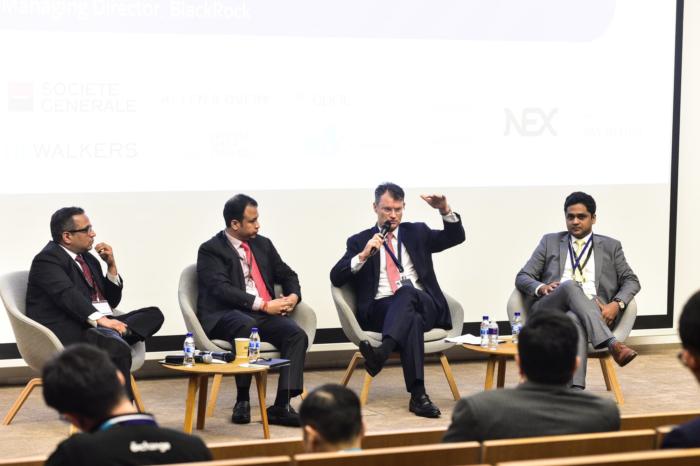
Pre-Forum Workshop: Examining Private Debt and Accessing Emerging Markets. Featuring speakers from Edelweiss, Apollo Management, Allen & Overy, BlackRock, SGX, Goldman Sachs and Herbert Smith Freehills
The pre-Forum began with a focus on private credit opportunities that exist in Asia. The panel devoted a significant amount of time to evaluating market opportunities in India. Looking at the complex regulatory challenges facing private credit in that country, panellists anticipated that larger regional players would become more specialised.
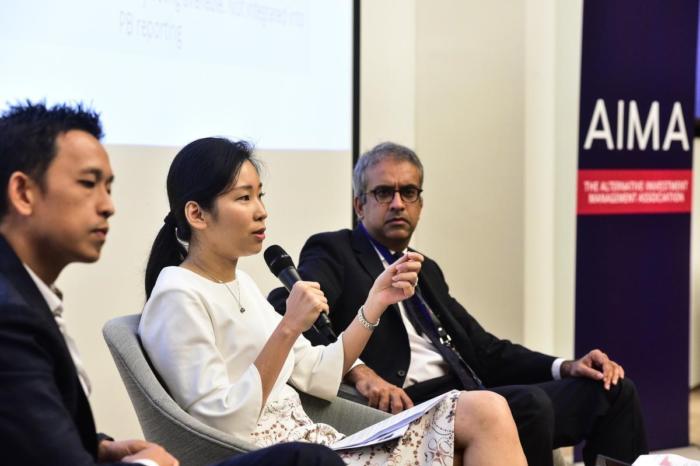
Pre-Forum Workshop 2: Why Asia's Emerging Markets Are Not Emerging. Featuring speakers from SGX, Goldman Sachs and Herbert Smith Freehills
The second panel addressed market access regimes available to investors and the different hedge fund schemes and regulatory frameworks in China and India. In China, the market currently favours schemes such as the Qualified Foreign Institutional Investor (QFII), Renminbi Qualified Foreign Institutional Investor (RQFII) and stock connect programmes. In India, the panel felt the Foreign Portfolio Investment (FPI) regime currently represents the most attractive scheme, as it simplifies access for investors.
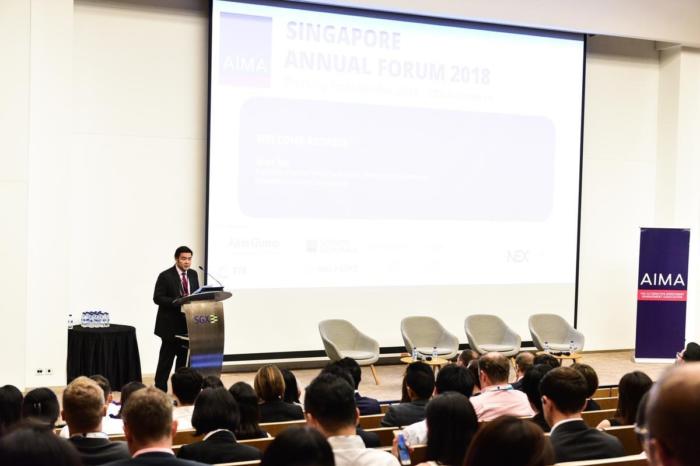
Setting the Scene: Regulatory Optimism and Examining Long-Term Asset Allocation
Regulators spoke about the direction in which the alternative investment industry is heading in Asia. They noted that more financial institutions and sovereign wealth funds are opening offices in Singapore. There is also a significant funding gap for infrastructure projects in the region, and the formation of the Asian Infrastructure Office by the Singaporean government is one of the country’s key commitments to realising the potential of the area. Private investors could benefit by becoming part of this significant initiative. Alternative investment strategies can also benefit from the flexibility and economies of scale offered by new corporate structures, exemplified by the recent Variable Capital Companies (VCC) Bill in Singapore.
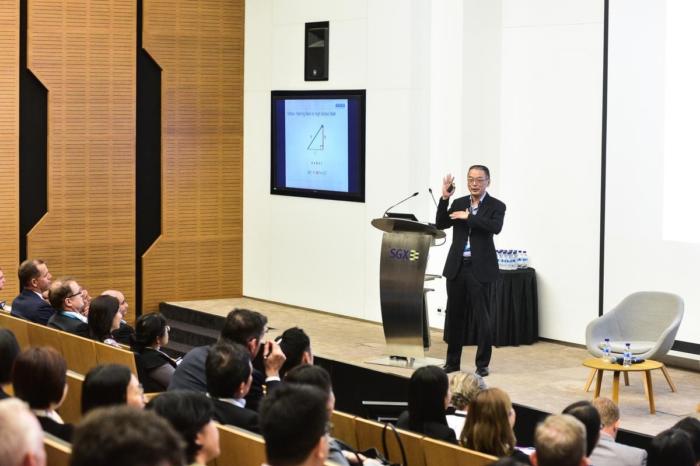
Allocation to Alternatives: Perspectives from Long-term Asset Owners
Our second keynote discussed how long-term asset owners have steadily increased their allocations to alternative asset assets in the last two decades, principally to private equities, real estate, infrastructure and hedge funds. This is often done by setting fixed allocation targets to alternative asset classes alongside traditional ones such as bonds and equities.
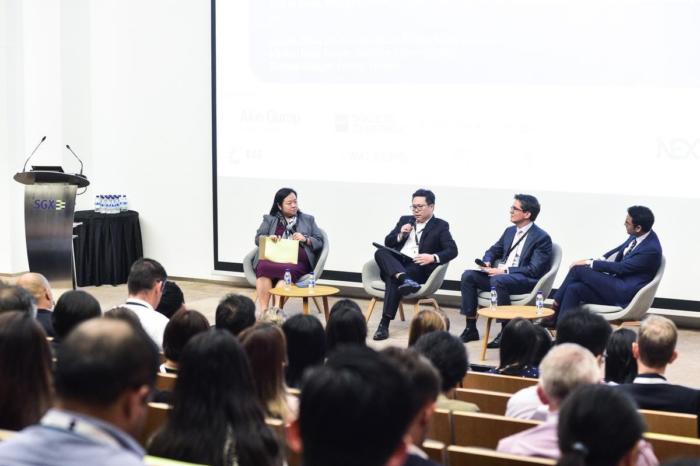
Are the Screws Tightening? Key Trends in Regulation and Enforcement. Featuring speakers from Goldman Sachs (Asia) LLC, Akin Gump Strauss Hauer & Feld LLP, Simmons & Simmons JWS and Walkers
The panel acknowledged that the recent volume of new regulation for the alternative investment industry might now be reducing in Singapore. These included the amendment to the Securities Futures Act (SFA), the recently-passed Variable Capital Companies (VCC) Bill and the Monetary Authority of Singapore (MAS) guidelines on financial institution accountability and standard of conduct.
Globally, panellists observed a broader trend of deregulation, particularly in the United States. Areas such as familiarity, certainty in tax treatment, the distribution of liability and access to the legal system were listed as crucial components of any would-be alternative investment hub.
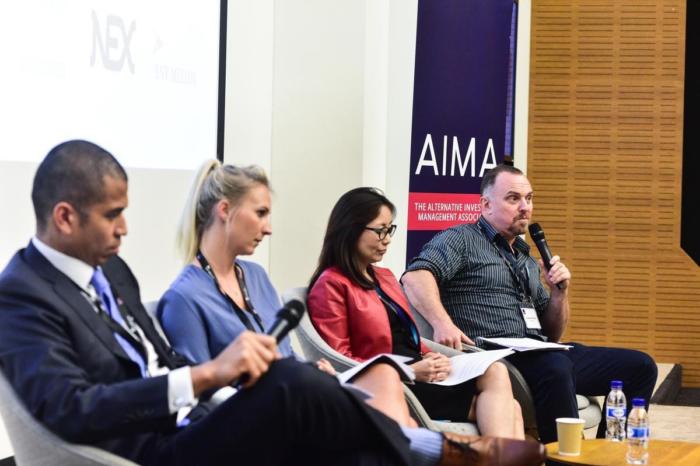
Shifting Sands: Ops Redefined. Featuring speakers from Société Générale, SS&C GlobeOP, BitSpread, Eze Software, NEX Optimisation
Panellists viewed the advances being made in technology as a key enabler for improving essential firm operations, such as data storage and risk analysis. However, integrating technology effectively into operations remains challenging.
Turning to markets in Singapore and Hong Kong, the panellists shared their experiences in recruiting and retaining talent. Firms must adjust their operations from time to time to attract and retain talent. This is even more important in competitive markets like Singapore and Hong Kong.
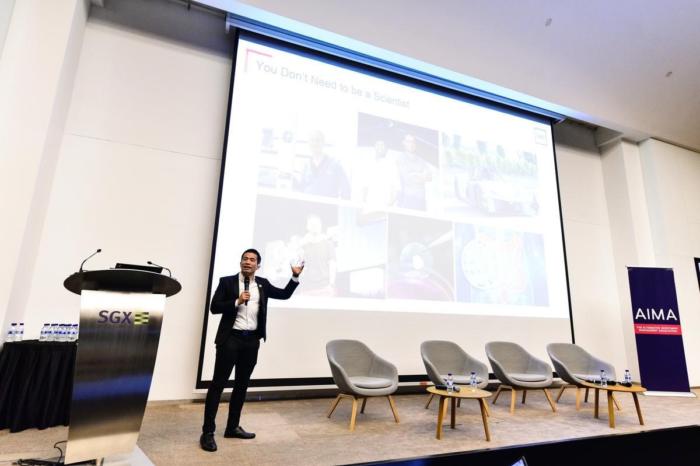
A Fresh Look at Venture Capital Opportunities in Tomorrow’s World
From Indonesia to Thailand there is significant growth in the start-up scene around Singapore. It is important to recognise that investors don’t need to look all the way to Silicon Valley to find talent, and there is currently US$2.7 billion of new Series A funding allocated to Southeast Asia. There is a growing availability of capital for the private markets. New entrants increasingly invest directly in founders, bypassing venture capitalists.
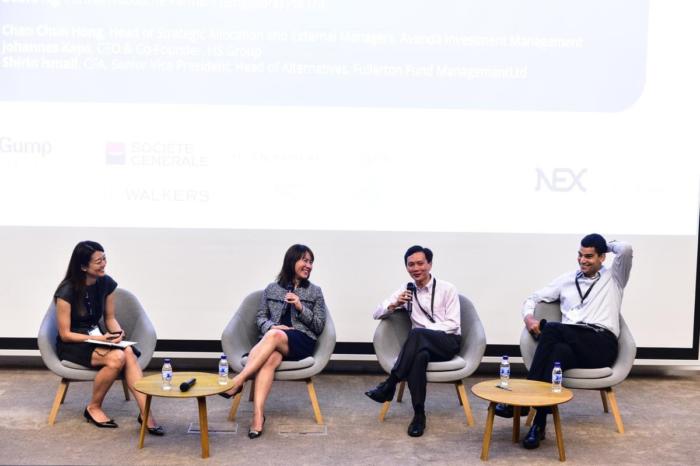
Alternatives: In or Out? Featuring speakers from Albourne Partners, Avanda, HS Group and Fullerton
The panellists stressed the importance of due diligence and suggested hiring an operations evaluation department (OED) officer to run their own background checks on various fund investments to ensure there are ‘checks and balances’ in the system.
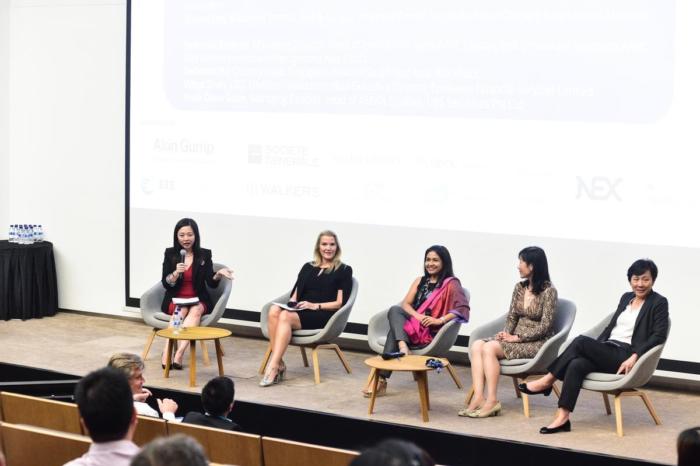
Why Diversity Matters: Featuring speakers from Eng & Co. LLC, BNY Mellon, BlackRock, Edelweiss, UBS
The overall tone was positive, with speakers keen to highlight the various schemes available at their companies to bring women back into the workforce following maternity leave. They emphasised that a structured programme is essential to retaining female talent.
The panellists shared the personal challenges that they had faced because of their gender and recognised supportive superiors. The discussion ended with the panellists emphasising the need for greater communication between male and female colleagues to minimise any potential lack of understanding on the part of the industry regarding diversity and inclusion issues.
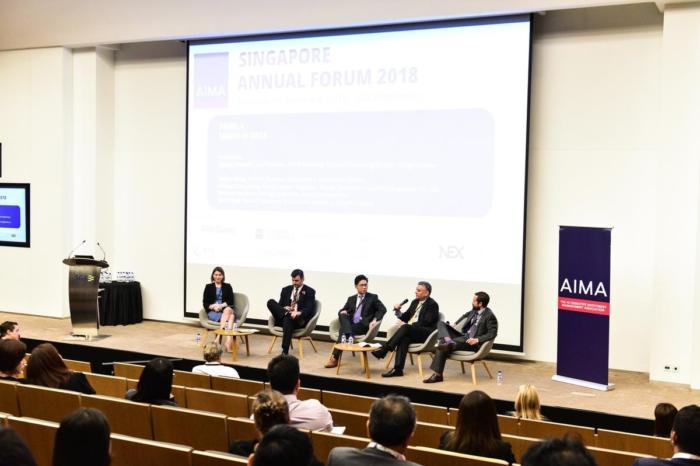
Smash N' Grab: Evolving Fund Flows and Distribution Trends. Featuring speakers from Morgan Stanley, Lansdowne Partners, Mercer, Algebris and Astignes
Discussing set mandates, panellists cited the many European managers who continue to rely on Undertakings for Collective Investments in Transferable Securities (UCITS) products for distributing their investment funds in Asia. Further, shariah-compliant funds continue to gain traction with investors globally.
Thank you
AIMA wishes to thank those who attended the Singapore Annual Forum 2018 and all our speakers and panellists for providing such a depth of insight and knowledge. We are pleased that people enjoyed the Forum, that they found it useful and that the event remained well attended during the day.
Don't miss
The AIMA APAC Annual Forum 2019 in Hong Kong on 7 March. This marks our 20th year in the region so expect an exceptional agenda.







